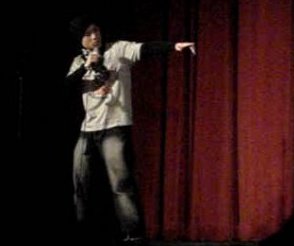It seems that one of the reasons as to why people prefer blogs to mainstream media is because of how in-depth it can be. Indeed, while the latter has to focus on delivering brief nuggets of the news, bloggers can go into detail. Jill Rettberg, in her book, Blogging, calls this gatewatching, where bloggers can identify important material in order to verify its authenticity. She also mentions that citizen journalism also allows for transparent bias, which readers trust more, as it allows for more "honesty."
An example of such "honesty," then, is Yoani Sánchez. In Cuba, where dissent is met with governmental backlash and censorship, Sánchez posts guerrilla entries about her daily reality (vs. the veil of deceit of the regime). In a translated interview, Sánchez noted than an advantage bloggers have over the mainstream is that they are at the "epicenter of events," which allows them to provide the news unadulterated and without comprises usually reported by those with "journalistic integrity."
A problem with citizen journalism, though, is one of its strengths as well. Strong opinions, such as Sánchez’s, is uncontested, as bloggers can choose not to debate on their blogs (though some may argue that arguing is not the point). Also, as bloggers gain popularity, they may feel enticed to act a certain way to maintain and grow their readership (not unlike the way NtCoolFool felt when his posts were recognized by the mainstream media). Sánchez seems to want to invite criticism of the government, but not engage in debate with it; however, one can argue that that is because she blind-blogs with the help of outsiders.
Subscribe to:
Post Comments (Atom)

i think that we are on the same page in regards to what blogs mean and how they should be used. i agree that the freedom of blogs can sometimes be a liability because of the fact that you are able to say anything you want.
ReplyDelete